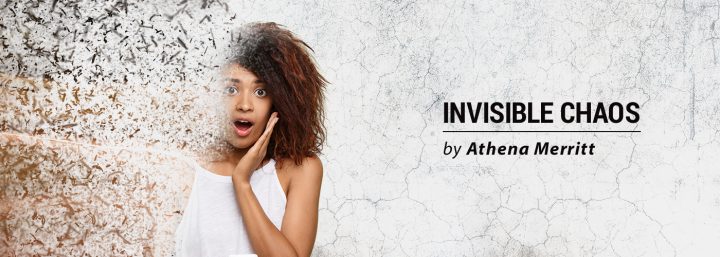I’m Quarantine Ready, Thanks to Sarcoidosis

I’ve been managing all right while being holed up alone since mid-March. But when I see my family and can’t hug them, I break inside.
My mom worries, so twice a month I drive over and wait outside. From 6 feet or more, she mothers, telling me I should have a coat on and judging whether I’m eating enough. I randomly cry for days after that, mentally unpacking the wounds my sarcoidosis is causing again.
Unable to wrap my arms around my family, I’m left with only words to comfort them. I tell them I love them. I’m being safe. I remind them that my lengthy battle with this rare disease has made me more prepared than others for times like these.
I never believed the rhetoric that COVID-19 wasn’t serious, would disappear on its own, or would cause problems only for a small minority of people. I felt déjà vu about what I was told when diagnosed with sarcoidosis, which still affects me nearly 20 years later.
So, I did what battling an unpredictable disease has taught me to do. I hoped for the best but planned for the worst.
Pulling from my playbook
I already had experience avoiding viral threats because of my many rounds of prednisone, which suppresses the immune system. This time around, I’m getting a helping hand from people who are social distancing, wearing masks, and mostly staying home.
Sarcoidosis taught me the hard lesson of unexpected, indefinite job loss. That’s why I keep enough in savings to cover bills without income coming in. And it’s why I reentered the workforce last year with a backup plan: two part-time jobs, one of which I could do from home.
I budget carefully because unexpected medical expenses are common when dealing with a disease whose path can’t be predicted. Adding a recurring expense means first cutting the equivalent elsewhere. My budgeting habits have backfired at times, like passing up what are now the hardest items to find because of hoarding.
Over the years, I’ve also learned to take new normals in stride. My zombie-like fatigue often leaves me with limited windows to get things done. I’ve become adept at tackling tasks in as little time as possible, which is handy when venturing out into a pandemic for essentials.
But I’m equally skilled at getting by without going out because of many symptoms, such as syncope, which keep me homebound. It’s not as easy now as it was in the past, with so many people competing for the same resources. Grocery delivery and pickup services are often completely booked.
So, I have had to get creative. I’ve taken advantage of Panera Bread’s new grocery offerings and used contactless pickup to get water from a beer distributor. With meat shortages now on the horizon, I plan to turn to local farms and butchers and add more vegetarian meals to my diet.
It’s a worrisome time to have sarcoidosis. But if it wasn’t for this disease, I wouldn’t have gained the many experiences that are helping me now.
Brighter side: We all could use a break from bad news. I’ll be closing my columns with a roundup of positivity until we are able to say goodbye to masks, hug our loved ones, and leave our homes without fear.
- Feeling cooped up? You can explore some of the planet’s most beautiful places in The New York Time’s “World Through a Lens” series. Take a virtual tour of museums from around the world, which Travel + Leisure magazine reported on. Or embark on the 12 best virtual vacations compiled by TripSavvy.
- Got milk? Sassy Cow Creamery in Wisconsin put a refrigerator outside in March, called the “Kindness Cooler,” to provide free milk and dairy products to those in need. The creamery has been giving away more than 400 gallons of milk daily and plans to keep it stocked through the pandemic, CNN reported.
***
Note: Sarcoidosis News is strictly a news and information website about the disease. It does not provide medical advice, diagnosis, or treatment. This content is not intended to be a substitute for professional medical advice, diagnosis, or treatment. Always seek the advice of your physician or other qualified health provider with any questions you may have regarding a medical condition. Never disregard professional medical advice or delay in seeking it because of something you have read on this website. The opinions expressed in this column are not those of Sarcoidosis News or its parent company, Bionews Services, and are intended to spark discussion about issues pertaining to sarcoidosis.







Leave a comment
Fill in the required fields to post. Your email address will not be published.